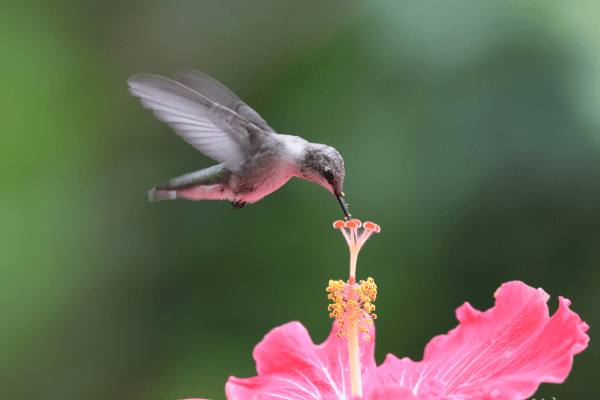Green pest control keeps yard-friendly pollinators safe to grow your garden!
June is National Pollinators Month. Pollinators play an essential role in the health of our yards and the ability to keep plants growing and thriving. While pest control may focus on eradicating pesky insects and rodents, there are bugs we want to try to protect in the process. Certain types of green pest control are safe for pets, pollinators, and your family. This post will look at some of the yard-friendly pollinators that are good to have in your garden and what we can do to help keep them working hard!
Yard-Friendly Pollinators
Bees
Bees are one of the most important pollinators. They are attracted to a wide variety of flowers and are highly efficient at transferring pollen between plants. Consider creating a bee-friendly garden by including plants like lavender, sunflowers, and bee balm.
Butterflies
Butterflies are not only beautiful, but they are also excellent pollinators, making them both eye-catching and yard-friendly. They are attracted to bright and colorful flowers with a flat or shallow shape that allows them to access nectar easily. Include plants like butterfly bush, milkweed, and coneflowers to attract butterflies to your garden.
Moths
As many find them less appealing than butterflies, moths are often overlooked as pollinators, but they play a crucial role, particularly for night-blooming flowers. Moths are attracted to white or pale-colored flowers with a strong fragrance. Include flowers such as moonflower, evening primrose, and nicotiana to attract moths.
Hummingbirds
These tiny birds are excellent pollinators, especially for tubular-shaped flowers. They are also fun to watch flit around your yard! Hummingbirds are attracted to bright and fragrant blooms with a long, narrow shape. Flowers like salvia, fuchsia, and trumpet vine are perfect additions to your garden if you want to attract hummingbirds.
Beetles
Beetles are generalist pollinators and can be beneficial for plants with large, bowl-shaped flowers. They are attracted to flowers with strong scents. Some flowers that attract beetles include marigolds, zinnias, and daisies.
What can I do to help pollinators?
It's essential to provide a variety of flowering plants that bloom at different times throughout the growing season to support a diverse range of pollinators. Providing a water source like a birdbath or small water bowl will give pollinators a place to get a drink. While open water sources can also attract mosquitoes, proper mosquito protection from a trusted company can ward off pesky blood-suckers while keeping your yard safe for pollinators. You can also add mosquito repellent plants to your yard to help as well.
Consider green pest control options to protect yard-friendly pollinators.
Using regular pesticides for pest control may seem convenient, but it can cause harm to your home's environment. Pesticides can contaminate soil, water, turf, and other vegetation surrounding your home. In addition to killing the pesky insects, pesticides can be toxic to pollinators, birds, fish, plants, and yourself. Look for a pest control company that offers safe, eco-friendly pest control options.
We hope your garden is filled with yard-friendly pollinators to celebrate National Pollinator Month! Which pollinator is your favorite to watch?
Eco-Friendly Pest Control in Hilton Head, South Carolina
At Hilton Head Exterminators, we are proud to offer state-of-the-art, effective green pest control techniques and products. Our Integrated Pest Management (IPM) approach is focused on managing pest damage by the most economical means and with the least possible hazard to people, property, and the environment. Simply mention Green when you email or call us, and we will get you started today.



